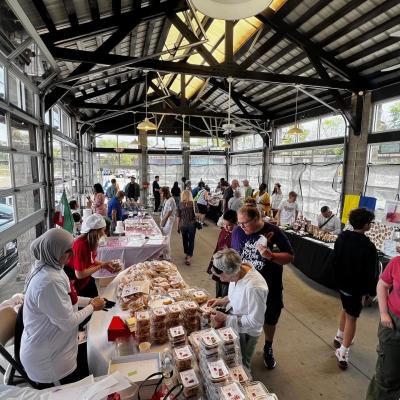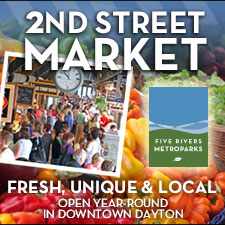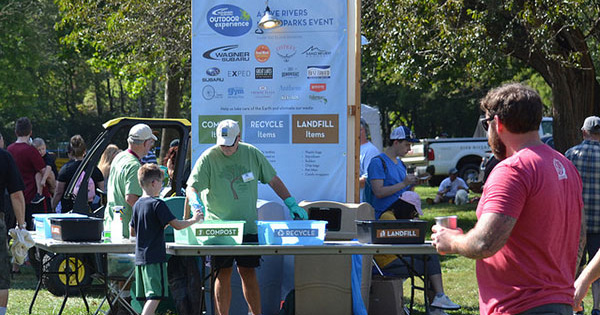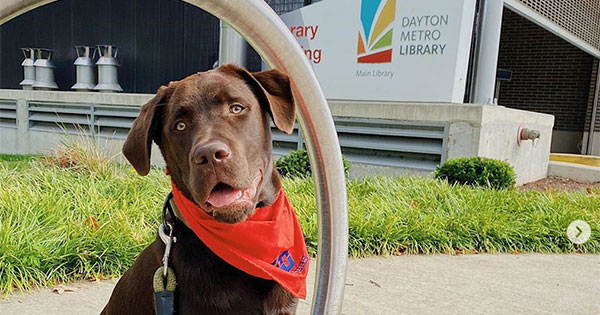10 Tips to Get the Most from Dayton Area Farmers Markets

Here are some tips and tricks to make sure you're getting the most from these markets while side-stepping the occasional issues with buying local.
10 Tips to Get the Most from Dayton Area Farmers Markets
Now that it's July, farmer's markets around Dayton are in full swing providing the Miami Valley with fresh fruits and vegetables, local eggs and meats, and herbs to add flavor and zest to all the healthy meals you're preparing. Here are some tips and tricks to make sure you're getting the most from these markets while side-stepping the occasional issues with buying local.
1. Arrive early for the best selection; arrive late for the best deals
If you're someone who likes to get an early start, you're in luck - if you arrive when the farmers market has just opened, you get first dibs, which means the ripest, freshest produce and the best selection the market has to offer.
If you're not much of a morning person, that's ok! In fact, some vendors will even sell their produce at a discount towards the end of the day to avoid trucking it back to the farm. Keep in mind that not all vendors will do this, but those who do will likely post signs or announce it.
2. Come prepared - you never know what you'll find!
Always bring your own bags - you can't assume that all vendors will have the plastic ones available and you'll look a little ridiculous with apples in your pockets.
Bring a cooler - especially if you're likely to buy fish or meat items.
Bring cash, especially smaller bills if possible. Some vendors will be able to process credit card transactions but the best way to buy at farmers markets will always be cash. It's also a great way to watch your spending.
3. Know that not all produce is local just because it's in a farmers market
All farmers markets have their own rules and regulations. Some will not allow any vendor to sell items they did not grow themselves. In Dayton, our markets are mixed - we even have vendors who are selling wholesale items that might not even be local.
The only way to know where your produce comes from is to ask the vendor "Where was this grown?" "Are you the grower?" etc. Of course, occasionally they even leave the stickers on the produce that state where it was grown, which is a dead giveaway. There are subtler clues as well:
Check for the wax coating on the outside of the produce. Occasionally a vendor is also a large scale commercial grower but for the most part the vendors are much smaller scale and therefore would not be processing their produce at a commercial packing facility. Wax coating is a step that commercial farmers use to help seal in moisture and prevent bruising during shipment to other parts of the country. Local growers who primarily sell their produce in local farmers markets will not need to do this so if you notice the wax coating; it's a possible red flag that the vendor is selling produce they themselves did not grow.
4. Know your local crop calendar
The best way to ensure you're getting fresh, local produce is to know your local crop calendar for Ohio. Most of us have done all of our food shopping at grocery stores our whole lives so it's hard to remember that farmers markets won't have items that can't be grown in Ohio (at least they shouldn't - if they do, that's another red flag that they aren't selling locally grown produce). They also won't have items that are out of season (again - they shouldn't, see #3).
Also, the better you know what produce to expect, the better you can plan for recipes you'd like to make.
5. Certified Organic vs. Grown Organically
As with most certifications, they mostly pertain to large scale commercial farmers who can afford to become certified. In fact, growers who earn less than $5,000 per year are exempt from even applying. Oftentimes the smaller scale growers use even better organic methods because they are personally committed to upholding that standard whereas larger commercial operations will unfortunately find any loop holes in the government regulations and exploit them. The best way to know how your produce was grown is to ask the vendor questions like "how do you control pests and weeds on your farm?" "Do you spray?" etc.
6. Beware the health blindness effect
If the whole reason you're shopping at a farmers market is to try to eat healthier, remember that just because a vendor sells vegan cupcakes in a market full of fresh fruits and veggies, it's still a cupcake loaded with sugar. Proximity to health food does not make it health food. Hopefully science is working on this, but in the meantime maybe limit the sweets.
7. Don't be afraid to try new things
Remember that little rectangle in your pocket - the one you use to play Candy Crush? It's also a great resource to identify recipes using fruits and vegetables you may not have tried before. You might find a new favorite! Also, if the booth isn't swarming with people, feel free to ask the vendor how he or she cooks/prepares the item. Since they are passionate about growing produce, they likely know the best way to enjoy it.
8. Walk around and check for the best deals
If you have some time to spare, walk around and take a look at all of the vendors' booths to make sure you're getting the very best deal. It's no fun to buy a bunch of cucumbers only to walk two booths down and see that even better looking ones were a dollar cheaper per pound. You might also see that one vendor has the most items you're looking for, which might be more convenient than getting an item here and an item there.
9. Dude, do you even can?
Canning is a great way to enjoy produce in the winter months and if you'd like to learn more about it, Garden Station occasionally holds educational sessions to learn how. If you do get into it, farmers markets become a great place to buy produce by the case, often at a savings of 15-30% - or more if you don't mind #2 produce (items that don't look as attractive but whose quality is still top notch).
10. Use farmers markets to teach your kids where food actually comes from
Let your kids ask real farmers and growers all of the questions they've had about food and how it's made. They will get so much more from this experience than a trip to the grocery store could ever provide. Plus you'll be responsible for raising a generation of conscious food consumers!
Do you know where your nearest farmer's market is located? Check out Dayton Local's Farmer's Market calendar.


















